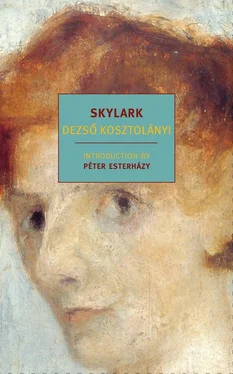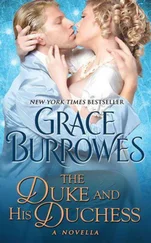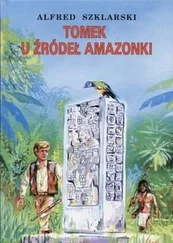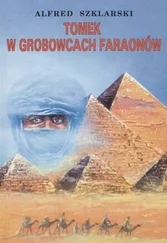Dezso Kosztolanyi
Skylark
Everyone was born at that time: Joyce, Musil, Broch, Rilke, Thomas Mann, Kafka, Einstein, Picasso, Wittgenstein. They were all there in their respective cradles, everyone who counted, le tout Paris . The Hungarian modern classics were there too: Endre Ady, Mihály Babits, Gyula Krúdy, Zsigmond Móricz, Lajos Kassák, Béla Bartók, Zoltán Kodály.
Everything came together rather nicely at the turn of the century, before the world collapsed. A spiritual golden age, in which one of the most important and glittering actors was Dezső Kosztolányi.
He was born in Szabadka (Subotica) [1] Subotica today belongs to Vojvodina, until 1990 an autonomous province of Serbia. It became part of the newly created state of Yugoslavia in 1918 at the end of the First World War. As a result of the postwar settlement (Treaty of Trianon, 1920), Hungary lost approximately two-thirds of its territory and one-third of its population to the new successor states.
in 1885, in that (to use his words) poor, grey, boring, dusty, bored, comical, provincial town. Even if we don't believe literature to be a mirror, in which reality catches a terror-stricken glimpse of itself, we can still admit that whoever reads Skylark (and also The Golden Kite ) can recognise in Sárszeg the Szabadka of the fin de siècle . The years of the fin de siècle are years of progress, of industrialisation; it is then that Budapest is born and at once becomes a genuine big city — even a little bigger than it really is.
Szabadka is an in-between city, neither one thing nor the other, frightfully respectable, its development well balanced, not as impetuous as, say, the more southerly Újvidék (Novi Sad), but not motionless either, like the more northerly Danubian town Baja. A similar indeterminacy can be felt in its bourgeoisie too; that is, the so-called gentlemanly middle class whose ambiguities we can see close up in Skylark . For this bourgeoisie considers itself heir both to the anti-Habsburg revolution of 1848 and to the Ausgleich of 1867, the compromise with Habsburg Austria, the birth of Kakania. [2] A term invented by Robert Musil to describe the Austro-Hungarian monarchy. It was coined from the abbreviation K. u. K. or K. K. (whence Kaka-nia), which stood for Kaiserlich und Königlich (imperial and royal) and was used in reference to all the monarchy's major institutions.
Kosztolányi is a sparkling youth, as talented as the sun. He is thrown out of the school where his father is headmaster, perhaps in the spirit of the above-mentioned ambiguities, but more likely because of an argument about rhyme in the school literary debating society, where he refused to accept the authority of his teachers. His cousin is Géza Csáth, whose short prose pieces are in fact the first modern texts, the first writings that are really of this century. [3] A selection of Géza Csáth's short stories is available in English. See Géza Csáth, Opium and other Stories, selected with a biographical note by Marianna D. Birnbaum, translated by Jascha Kessler and Charlotte Rogers with an introduction by Angela Carter, Penguin Books, Harmondsworth, 1983.
Kosztolányi arrives at the University of Budapest where he gets to know, among others, the poets Mihály Babits and Gyula Juhász. The correspondence of the three young men is touchingly beautiful, slapdash, pompous, charming, sensitive, far-sighted and ambitious. Kosztolányi gets a taste of the city and immediately falls in love with it. He is one of the most steadfast, faithful lovers of Budapest. A good lover. For a short time he studies in Vienna, but gives it up, and at the age of twenty-three becomes a journalist for a Budapest daily, replacing the poet Endre Ady who is in Paris. He never breaks with journalism throughout his life. Generations have (or haven't) learned from him how to write a little two- or three-page feature.
He begins his literary career with poems and symbolic short stories. The first volume of poems to bring nationwide success is The Complaints of a Poor Little Child , which appears in 1910. After this he publishes a book nearly every year. Kosztolányi wants everything: life, literature, success.
In 1908 the journal Nyugat (West) had been founded, the alpha and omega of modern Hungarian literature. Even today the voices of our older literary colleagues still falter when they speak about an exceptional experience, like being booted out by the fearsome editor, Ernő Osvát. (No such great things awaited Hungarian writers of the next generation: we were booted out by absolute nonentities.)
Nyugat was a real periodical; that is, not merely a rallying point for first-rate writers, but a point of crystallisation and a force of integration in what might be called the new, modern movement. If we wish to attach labels we can say that Kosztolányi was a member of the first Nyugat generation, a representative of l'art pour l'art , a writerly writer; Homo aestheticus , as he called himself, in opposition to the Homo moralis . Courageously and coquettishly he chooses the “babbling surface” as opposed to the “silent depths.” “Oh, sacred, clowning emptiness!” he cries out, in his “Song of Kornél Esti,” above all to his friend, the morally serious Babits, who grew more critical of Kosztolányi in later years.
Kosztolányi does not seek his own authentic face, but the authentic mask. He continually lives through roles and is close to classical decadence. The dandy is the last flowering of heroism in our age of decline, says the great dandyologist Baudelaire. Kosztolányi is a classical dandy, strict and severe.
He is multicoloured and ineffable, like a rainbow. There is nothing accidental about his shifting between genres. Critics at times heatedly debate whether he was primarily a poet or a prose writer, and whether his many-sidedness was an advantage or a disadvantage. I think it was neither the one nor the other, but simply a fact. In poetry he is the virtuoso, the child dizzied and shaken by all the wonders of the world. In prose he is precise, at times already an anxious anticipator of the nouveau roman , an adult facing up to the facts of the world.
He writes longer prose pieces from 1920. For him the twenties are the years of the novel: Nero, the Bloody Poet, Skylark, The Golden Kite, Anna Édes . [4] In addition to Skylark, two other novels by Kosztolányi are available in English translation: Nero, the Bloody Poet, translated by George Szirtes as Darker Muses, The Poet Nero, Corvina, Budapest, 1990, and Anna Édes, translated by George Szirtes, Quartet Books, London, 1991.
In 1924 he publishes a volume of verse entitled The Complaints of the Sad Man , rhyming with, answering and continuing the successful volume of 1910. This is a time of arrival. His reputation grows both at home and abroad. He becomes acquainted with Thomas Mann, who — as Hungarians never fail proudly to point out — writes a preface to the German edition of Nero .
Hungary has always had a great tradition in literary translation (the attentiveness of small nations — to themselves). Kosztolányi's achievement in this field is significant, his utterly exceptional sense of form almost predestines him for this. His translations include A Winter's Tale and Alice in Wonderland , to mention only two of the English references.
At the end of his life the virtuoso Kornél Esti stories appear, and the great late poems of the volume Reckoning . The “Meistersinger spun from the magic of poetic play and fate, imagination and tears” dies a difficult death from cancer of the larynx in 1936.
Читать дальше












